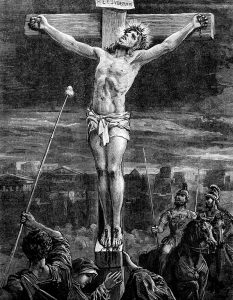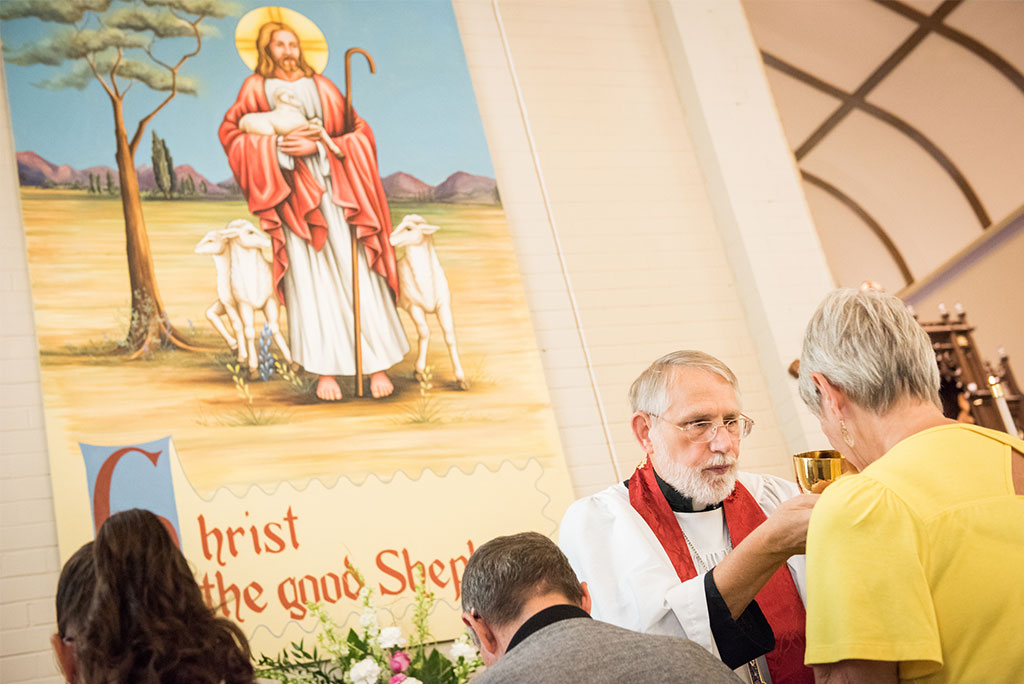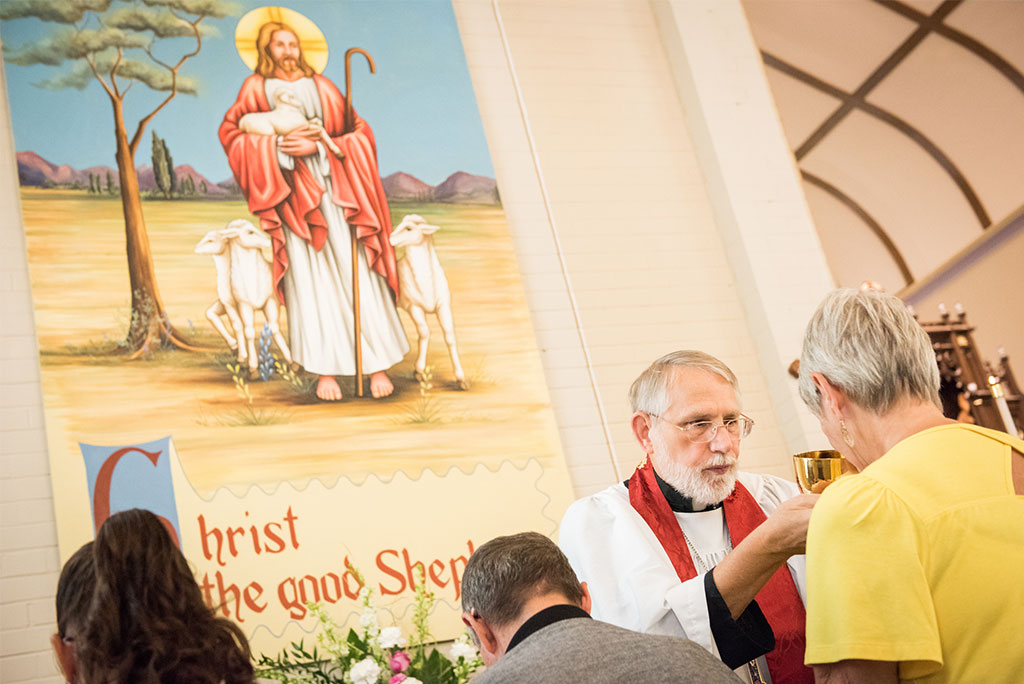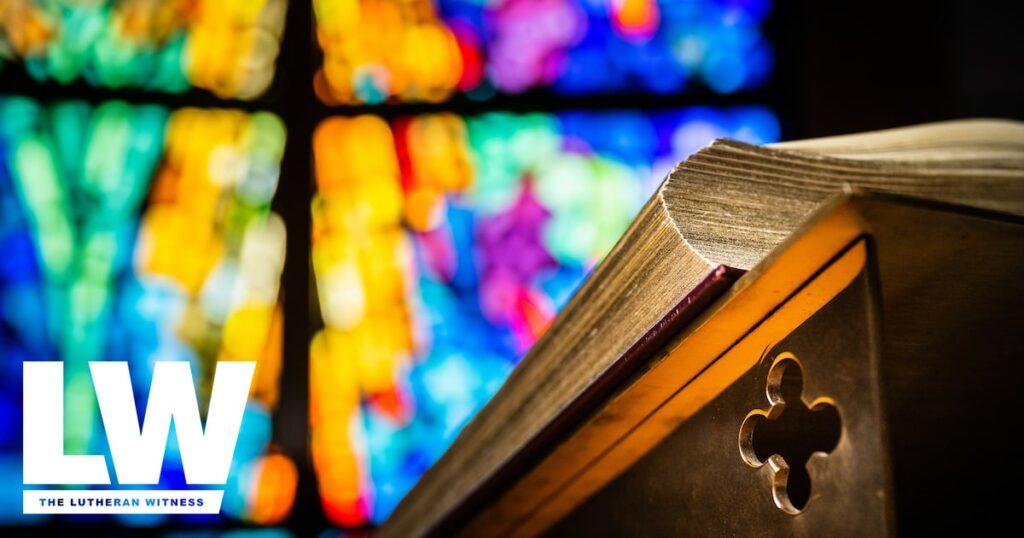“This article concerning justification by faith … is the chief article in the entire Christian doctrine, without which no poor conscience can have any firm consolation, or can truly know the riches of the grace of Christ.” (F.C. S.D. III, 6)
It’s not uncommon to hear it said that the word justification ought not be used. Our Lutheran Confessions, however, call it the “chief article.” Actually, there is nothing more familiar to people today than “justification.” Not only are we the most litigious society in history, all of us are bent on self-justification. I justify my actions; my production at work; my inaction. I justify my failings; my claims to respect; my “people.” I justify my feelings of anger or hatred; my attitudes. I justify myself over against my family, colleagues, etc. It never ends. Self-justification is often the bane of our existence, particularly in relationships in home, family and church. With God, self-justification is deadly.
God’s response to our self-justification over against Him is very simple. “Now we know that whatever the law says it speaks to those who are under the law, so that every mouth may be stopped, and the whole world held accountable to God. For by works of the law no human being will be justified in his sight” (ROM. 3:19F.).

This delivery depends upon God’s mercy, not our work. It is received by faith only. The deed was finished almost 2,000 years ago.
The Reformation breakthrough of Luther was about justification. Luther realized that the Bible speaks of justification in two distinct ways. The Law says, “Do this and you will live” (LUKE 10:29). This kind of “active righteousness,” however, terrified Luther because he knew that he was a sinner. Jesus wants more than just hands, feet and mouth. He demands that the heart and mind be sinless (MATT. 5:17). Trying to accomplish that leads only to self-deception and arrogance or despair (e.g., the Pharisee and the tax collector; LUKE 18:9–13).
Luther was studying Rom. 1:16–17: “I am not ashamed of the Gospel, for it is the power of God for salvation for everyone who believes … ‘The righteous shall live by faith.’” Suddenly, Luther realized it was not about an active righteousness (our actions), but about a passive righteousness (God’s actions in Christ credited to us freely)! The righteous requirements of the Law were fulfilled by Christ’s perfect life and death, to pay for our sins! The result? Righteousness — a “not guilty” verdict, rendered upon mankind in Christ, and appropriated by faith alone. (READ ROMANS 3–4.) This has many ramifications.
- Everything that Christ is and does is declared (“imputed”) to be ours! He gets our death, sin and hell. We get His life, death, and resurrection credited to our account. “He who knew no sin became sin for us that we might become the righteousness of God” (2 COR. 5:21; CF. ROM. 4:6; PHIL. 3:9; JER. 23:5F.).
- This “righteousness” is delivered to us by means of the Gospel (ROM. 1:16).
- This “righteousness” is delivered by Holy Absolution, whether privately by a Christian or publicly by our pastor. “Whosoever sins you forgive …” (MATT. 16:19; 18:15FF.; JOHN 20:22F.).
- This “righteousness” is delivered by Holy Baptism. “For as many of you as were baptized into Christ have put on Christ” (GAL. 3:27; IS. 61:10). “He saved us, not because of works done by us in righteousness (active), but according to His own mercy, by the washing of regeneration and renewal of the Holy Spirit, whom He poured out on us richly … so that being justified (passive) by His grace,” etc. (TITUS 3:5–6).
- It’s delivered by the Lord’s Supper. “Take and eat … for the forgiveness of your sins.”
- This delivery depends upon God’s mercy, not our work. It is received by faith only. The deed was finished almost 2,000 years ago. “God was in Christ reconciling the world to Himself” (2 COR. 5:19). Faith merely grabs hold of Christ. “Abraham believed God, and it was credited to him as righteousness” (ROM. 4:3; GAL. 3:6F.).
- Because justification is totally Christ’s act, it is absolutely certain. “There is now no condemnation for those who are in Christ Jesus” (ROM. 8:1).
- We are completely sure of God’s attitude toward us. “Since we have been justified by faith, we have peace with God through our Lord Jesus Christ” (ROM. 5:1).
- Our righteousness in Christ is certain. So we have a solid sure hope. “Through Him we have obtained access by faith into this grace in which we stand, and we rejoice in hope of the glory of God” (ROM. 5:2).
- We can even rejoice when we suffer. God is not against us. In fact, “all things work together for good for those called …” (ROM. 8:28; 5:3–4)
- We are declared just, and freed to live with gusto. “For freedom Christ has set us free!” (GAL. 5:1; ROM. 14:17). We are freed not to expect those around us to be without sin! (GAL. 2:17; ROM. 3:22F.). We are forgiven. We forgive! (MATT. 18:15FF., 33).
This is all worth confessing — both for our own sake and for the sake of others. “For with the heart one believes and is justified, and with the mouth one confesses and is saved” (ROM. 10:9–10).
Pastor Matthew Harrison
“Let’s go!” Mark 1:38
e-mail: president@lcms.org
Web page: www.lcms.org/president






How does Calvin’s teachings on the TULIP compare with the teachings of the LCMS as found in The Book of Concord?
Thank you for your question. Perhaps the Frequently Asked Question at http://www.lcms.org/faqs/denominations#reformed will be helpful.